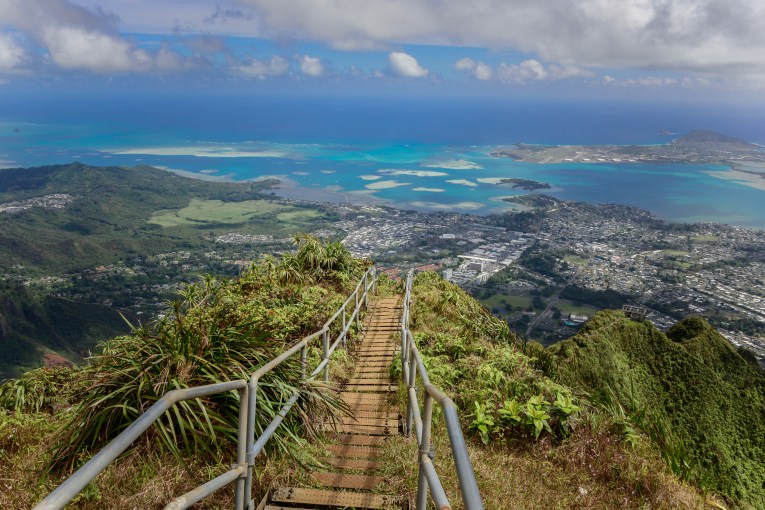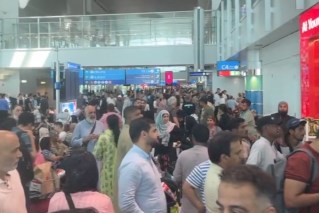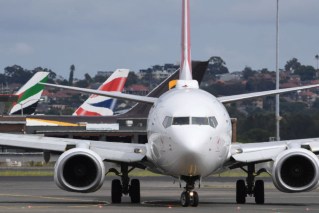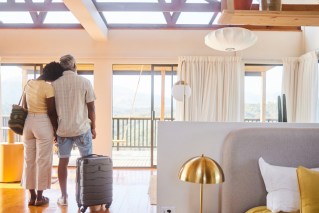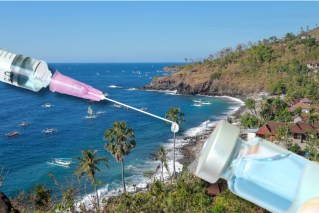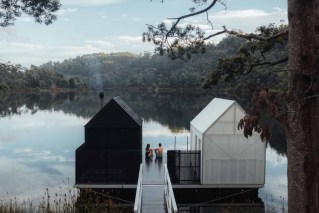Virgin Australia’s bookings jump 40pc weeks before the government’s cheap airfares begin
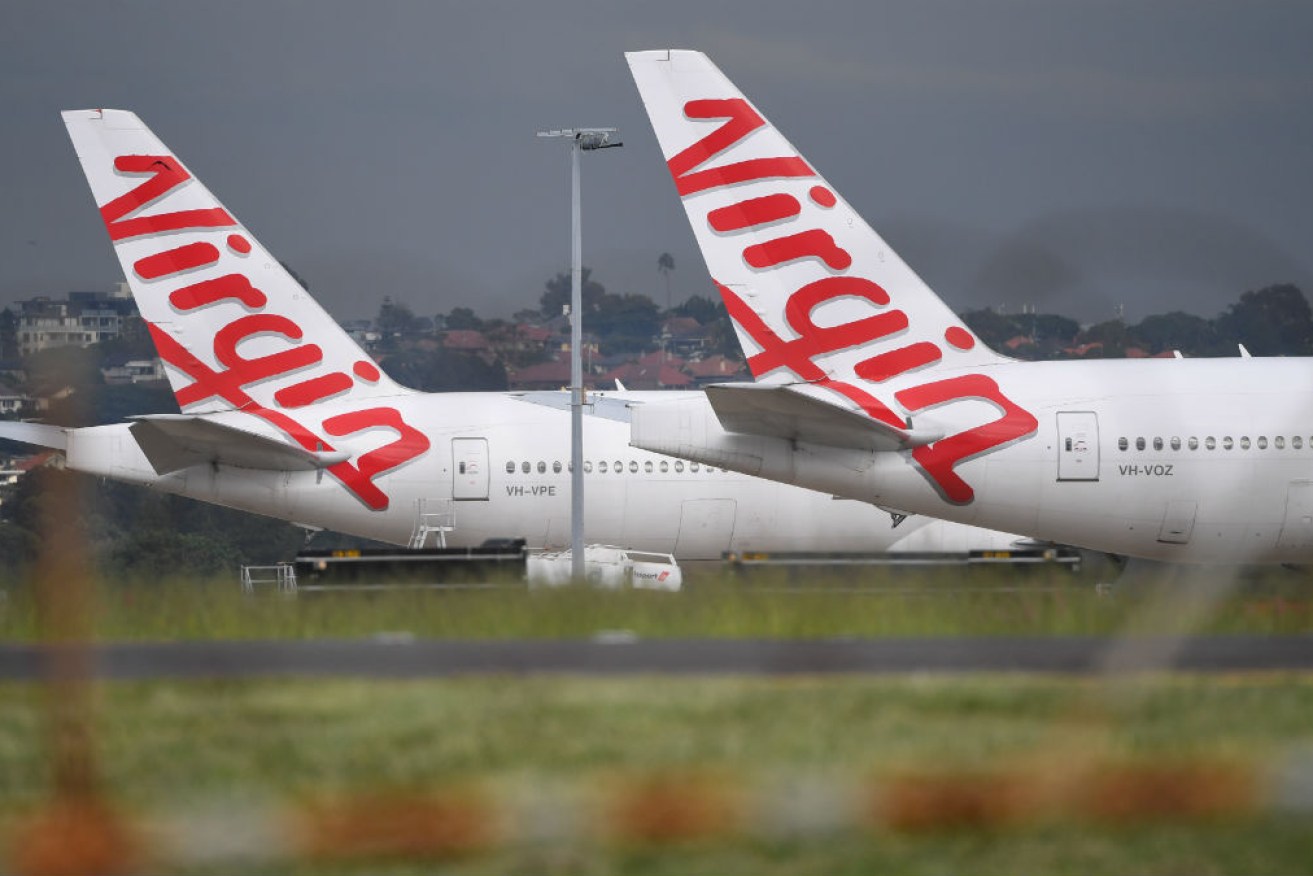
Cheap airfares will not begin until April. Photo: Getty
Virgin Australia’s bookings jumped by 40 per cent on Thursday after the federal government announced it would subsidised half-price domestic flights between April and July.
Jayne Hrdlicka, Virgin’s chief executive, said the airline’s website had a huge boost in activity and it is hoping to capitalise on that activity with its own private “flash sale” of tickets later today.
“Our bookings were up 40 per cent yesterday and the half-price fares aren’t there yet,” she told ABC News Breakfast on Friday.
“The traffic to the website was twice what it had been before. We can clearly see Australia’s hungry to get out and about and get back to normal while staying safe.”
Ms Hrdlicka said Virgin was running at 50 per cent of pre-COVID capacity and was on track to hit 65 per cent in April, and hoping for 80 per cent by the end of June.
But those numbers depended on state borders remaining open and the government’s half-price airfare program would not work if state borders shut again, Ms Hrdlicka said.
“Everybody’s got to start to think a little bit differently about how we transition out of the very conservative settings we’ve had,” she argued.
How the scheme works
The federal government has promised to halve the price of nearly 800,000 airline tickets to select regional towns and cities for four months, as part of a $1.2 billion package aimed at getting more Australians to holiday domestically.
Between April and July, a 50 per cent discount on tickets — subsidised by taxpayers — will be offered for flights to and from 13 specific destinations, including the Gold Coast, Cairns, the Whitsundays region, the Sunshine Coast, Uluru, Alice Springs, Launceston, Devonport, Burnie, Broome, Avalon, Merimbula and Kangaroo Island.
Many of the initial destinations included in the program are in marginal or winnable electorates for the government.
However, the government insists the program is targeted at locations that still have the highest dependence on JobKeeper, international tourists and domestic flights.
It has since added Darwin and Adelaide to the list.
The government said the precise number of tickets will be driven by demand and is still being discussed with airlines, but it is estimated an average of 46,000 half-price fares will be offered each week, mostly with Qantas, its subsidiary Jetstar, and Virgin.
‘Unusually selective’ program
The program has its critics, with regional tourism operators wondering why certain locations were chosen over others.
“The idea that we will just continue to leave the Dubbo regional airport sitting out there losing money without many flights here, while we are throwing money at these Queensland destinations is so unfair to western NSW,” Dubbo mayor Ben Shields said.
Tony Webber, the chief executive of Airline Intelligence and Research, said the subsidised flight routes covered only 16 per cent of the domestic market, so it was an “unusually selective” program.
“We also know that air transport only accounts for 20 per cent of the mode of transport chosen for the overnight visitor market, so it’s only really reaching 20 per cent of 16 per cent,” he told the ABC.
“I think they really should have included all the capital cities, because they’re the biggest drivers of inbound domestic tourism, accounting for nearly 50 per cent of domestic tourism.
“It’s really surprising they haven’t included the capital cities in this package.”
‘Death warrant’ for buses
Greyhound Buses said the aviation-focused package was a “death warrant” for tour bus lines and “a lethal dagger aimed at the heart of the industry at the worst possible moment”.
“Greyhound has survived bruised and battered from COVID and we are taking another hit when JobKeeper ends at the end of the month. But this is the biggest blow of all and it may not be survivable,” the company said in a statement.
“Price is the main competitive advantage buses have over airlines and the government is wiping it out.”

Greyhound Australia warns the subsidy may be a “death warrant” for its COVID-hit business.
Dr Webber said Greyhound Buses were right to be concerned.
“Because 80 per cent of domestic tourism relies on ground transport, so that’s buses, trains, and self-drive where you rent a car or use your own car,” he said.
“So the buses, trains and car hire companies lose in the same way that capital cities lose and just like bigger regional towns in NSW like Dubbo, Wagga, Albury, Port Macquarie and Coffs Harbour lose.”
Dr Webber said the benefit of the government’s cheaper airfares could also be wiped away if hotels and other accommodation providers on the government’s list of select destinations raised their prices to match the increase in demand from tourists.
He said the scheme would have been fairer to other companies in the tourism supply chain if it was better designed.
“How do you assist everyone at the same time? It’s not an easy thing to do,” he said.
“You’d almost think you should do it through the tax system, by giving everyone tax cuts, or you could give everyone another long weekend because that would help everyone in the industry, with the benefits spreading out more evenly across the country.”
Ms Hrdlicka said there was “lots of conversation going on” about what’s included in the program, but the program will probably “continue to evolve”.
“The other thing I think that’s really important here is the simple fact that the government’s come out and been so confident about getting Australians moving across Australia,” she said.
